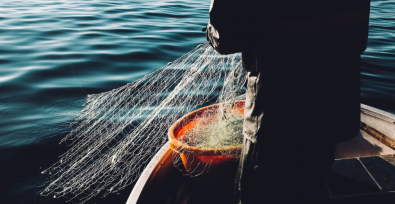A recent report found that European companies, led by Spain, Russia, and the U.K., owned almost 23% of the commercial fishing vessels accused of forced labor, according to Matti Kohonen of euronews. However, most European countries, along with other fishing industry giants like China and the U.S., have not yet ratified key agreements that ban forced labor in fishing vessels. In addition, European legislation protecting financial secrecy means that finding the real owners of any vessels accused of using forced labor is almost impossible, even if these agreements were ratified.
Conditions rife with labor abuse
The ILO estimates that on remote fishing vessels, in conditions of extreme isolation, and while performing hazardous work, an estimated 128,000 people on fishing boats suffer horrific forced labor abuses. And this figure is widely agreed to be an underestimate of the actual crisis. The ILO cites the abuse as including physical violence, unpaid wages, and having to spend years at sea. Yet most of the key nations invested in the global fishing industry have yet to ratify important protections like the ILO Work in Fishing Convention 188. However, ratifying the legislation isn’t enough to prevent modern slavery from running wild at sea.
Kohonen said:
“Even if countries implement the ILO Convention and other key agreements, financial secrecy means that ultimate owners of accused vessels can still evade justice.”
Hiding behind a smoke screen of cross-jurisdictional corporate structures like shell companies and opaque joint ventures, the ultimate owners of commercial fishing vessels that have been accused of forced labor can make themselves untraceable. Ratifying treaties and passing laws to stop or prevent forced labor at sea is futile if the real criminals cannot be held accountable.
One step forward two steps back
Currently, the E.U. is discussing a proposal that signals at least a willingness to try and tackle this type of modern slavery. The proposal would ban all products with forced labor found in their supply chain from entering or even being consumed in the European market. In addition, the U.K. is considering making goods from companies found to have forced labor in their supply chain fall under the Proceeds of Crime Act (POCA). In some recent cases involving Uyghur forced labor the judges recognized the general principle of forced labor as a crime even if there was no conviction. But these positive steps are still miles away from addressing the issue’s root causes.
Kohonen stated:
“All these measures are not enough unless the underlying problem of financial secrecy is resolved.”
In a shock ruling made last year, The European Court of Justice (ECJ) made it much harder to find who is benefiting from the crime of forced labor. Reversing hard-won progress mandating public access to beneficial ownership information, the ruling immediately stopped plans to provide access to this information from countries in Europe whose vessels stand accused of forced labor offenses at sea. According to Kohonen, the best hope of ending slavery at sea is to set up a public registry of all commercial fishing vessels accused of forced labor and a registry of beneficial ownership. Going forward, any vessel getting registered must disclose its legal and beneficial owners and all changes to the property over time. This is in addition to the major nations involved in the fishing industry ratifying international conventions. Freedom United echoes Kohonen’s words “Thousands of people’s lives depend on this happening. There is no excuse not to act.”







Freedom United is interested in hearing from our community and welcomes relevant, informed comments, advice, and insights that advance the conversation around our campaigns and advocacy. We value inclusivity and respect within our community. To be approved, your comments should be civil.